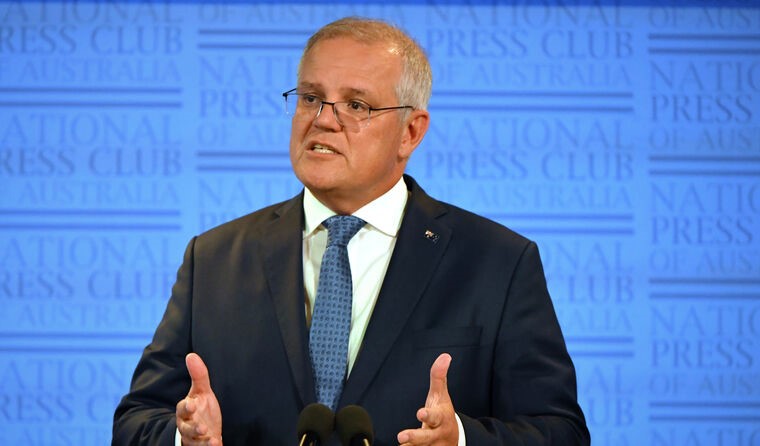In order to build vaccine confidence among the population, the Australian government needs to focus on education and reassurance. This article discusses three main ways in which the government or any company can use techniques to overcome customer hesitancy.
While the Australian government is caught up in vaccine supply issues, there’s another massive step that has been completely left off the agenda: vaccine confidence. While loud voices shout their strong pro-vaccine and anti-vaccine messages, the government hasn’t done enough work to convince the majority of people who sit somewhere in the middle of the spectrum.
If the government wants a certain percentage of the population to get vaccinated, it needs to implement a massive education and confidence push. So far, there’s been little to no effort to provide the confidence, reassurance, and support that Australians need. Recent reports about a potential risk of blood clotting with the AstraZeneca vaccine, for example, are enough to make anyone hesitate and must be addressed.
Instead of clear communication directly from the government, Australians have no choice but to rely on journalists, health influencers and social media comment threads to get the information they need.
Medical community leaders from a wide range of minority groups have claimed that the federal government’s COVID-19 vaccination program is failing to dispel myths and alleviate concerns and that they’ve been forced to educate their communities themselves. Reports from multiple sources have shown concern that the government’s education campaigns were ‘not cutting through’ vaccine misinformation.
And while side effects are common and expected, the public needs to be educated on what that might look like, so they’re prepared for the worst. If not, there’s a risk that some people might simply not return for their second shot.
Marketers and comms experts should pay close attention to how this situation plays out because every business has some form of consumer hesitancy that they need to overcome – whether it’s price, quality, efficacy or safety.
Thankfully, there are some steps that the Australian government can take to overcome vaccine hesitancy, and they’re qualities that businesses can similarly apply to their own unique situations.

Social listening
The first step is getting far better at listening to the public. Social listening is a great tool to do this effectively and accurately, along with reading what’s being written in the papers, on blogs, and in thought leadership pieces. There’s a good chance that many people have made assumptions that aren’t correct since there’s not a lot of clear information around the various vaccines on offer.
Social listening is the key to countering these incorrect assumptions. And speaking to your audience as though they are intelligent enough to receive more than a sound bite will make them feel respected, and reassure them that decisions are being well thought through. Validate to them that you too have considered the concerns they have and that there is a plan for it.
Listening helps you anticipate any and all questions, and answer them in a respectful way that doesn’t make people feel stupid for asking. Remember Jacinda Ardern’s handling of communication around COVID-19 in its initial stages, where she took the time to answer children’s questions in a special kids’ press conference? That’s the kind of listening that truly works.
Applied honesty
Another missing piece of the puzzle is honesty. The government needs to own up to potential mistakes around the vaccine, and the general public is far more likely to respond with empathy, which will eventually translate into trust and confidence. Of course, this only works if the government is genuinely sorry and can provide factually correct information about what went wrong, who is responsible and what they’re doing to fix it.
When helping a leader or business with a public apology, I only take them on if they are genuinely sorry and proactively making changes to make the future different. I have turned down many reputation management requests for this reason. Unless the government is ready to be 100 percent honest about the situation, the public will easily smell a rat, and there’s a risk of trust being damaged even further.

More empathy
Once it’s admitted to any perceived mistakes, the government would do well to communicate in a more empathic tone, one that recognises and appreciates that Australians are going through a confusing, stressful time.
They’d do well to take a leaf out of the major supermarkets’ books. Since the start of the pandemic, Coles, Woolworths, Aldi and IGA have all become well-versed in the language of empathy. You only have to look back to the start of the pandemic, when the supermarkets responded to the overwhelming demand for essential items with a communications campaign like no other.
The supermarkets banded together to tell the Australian public that they were “working together to provide for all Australians”, and urged shoppers to treat supermarket workers with respect. Humanity is one of the things that they did well. They did TV interviews in a high-vis vest from a warehouse stocking toilet paper, and press conferences in front of a busy supermarket. There’s no reason the government can’t take a similar approach with the vaccine rollout.
Ultimately, in order to win back confidence and avoid vaccine hesitancy, the government needs to learn how to listen and respond with empathy, conviction, and openness. Without these qualities, communication merely comes off as hollow and unconvincing. When it comes to something as important as the COVID-19 vaccine, they can’t afford to get this one wrong.
This article was written by Phoebe Netto, founder of Pure Public Relations, originally written for and featured on MarketingMag.com.au

